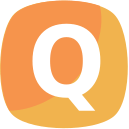

1) Utilitarian reasoning.
Read the Case Exporting Pollution at the end of Chapter 3 in Boatright. Analyze this as a utilitarian using the following questions. Use the chart below. Mark effects as shown below
Great positive effect ++
Some positive effect +
Negligible effect 0
Some negatigve effect –
Great negative effects - -
Who is affected
Option 1
Option 2
Option 3
Minimum wage workers
2) Fairness
You, the CEO, discover that the supplier you have been using for your APPLEBABY juice has been supplying sugar water, not apple juice. You told your superiors that your division would make $7m in profit this year. If you dump the fake juice and buy real juice it will cost you $750K hitting your bottom line.
You decide to dump the fake juice at half price in overseas markets where the FDA can’t reach you. By the time the FDA did intervene, you had offloaded all but 20,000 cases of the fake juice.
• Evaluate this CEO’s action using Kant’s Categorical Imperative.
3) Virtue Ethics
What virtues do you need in business?
· Identify the virtues you think you need in business, and why.
· Rank your answers from most important to least important
4) Home Depot
In the wake of Hurricane Andrew in 1992, individual price-gougers were selling building materials at wildly inflated prices, but not Home Depot. Following the hurricane, the store continued to sell plywood at pre-hurricane prices. Even when plywood wholesale prices increased by 28 percent, Home Depot announced that it would sell plywood, roofing materials, and plastic sheeting at cost and take no profit. Home Depot negotiated with its suppliers to reduce prices to pre-hurricane levels in order to enable the store to maintain its retail prices.
a) Justify Home Depot’s decision on utilitarian principles ie greatest good for greatest number.
b) Justify Home Depot’s decision on rights morality – inherent rights that must be respected.
c) Justify Home Depot’s decision on virtue ethics
d) Justify Home Depot’s decision on Kantian ethics.
5) Whistleblowing
Read the case a whistleblower accepts a deal in Boatright. Prepare a case study using the following format:
Decision: Was the whistleblower right to accept the deal?
Facts: What facts presented in this case are relevant to the decision. Choose only the important ones (no more than 8, usually 4-6)
Ethical Reasoning: Apply an ethical theory: (Utiitarian, Fairness or Virtue) support your decision. So if you think that the consequences f the decision to accept the deal are such that the good outweighs the bad, you would use Utilitarian reasoning and show that. If you are using fairness, you need to show what your maxim is and how it can be universalized. If you are using Virtue, you have to describe the options in terms of effect on the actor’s character.
Opposing Point of View: Write a justification for a decision that would he the opposite of yours.
Catholic Social Teaching (CST): Apply one or more of the Six Principles from the Vocation of the Business Leader (VBL) to this case


Week 1 Assignment 1. Market ethics in itself does not include a requirement that market actors consider any interests but their own. How does this conflict with gospel values? The two variables differ in that the former is characterized by a self-centered nature that overlooks the primacy of upholding the common good at all times. Gospel values are focused on ensuring that the good of all people and the whole person are upheld at all times. However, market ethics are characterized by selfishness that fails to bother about the welfare of others and is unsupportive of the common good. Market ethics also imply that the competitive actors are dominant; thus conflicting the gospel values regarding the equality of all persons in dignity. 2. A company doesn't buy provide health insurance for their employees. a) How would economists describe this? If an organization fails to offer health insurance cover to its workers, economists will describe it as a cost-saving initiative. The logic behind the economic argument for cost saving is based on market ethics that guide actors to consider their interests only. Therefore, the business’ failure to pay such benefits to its employees is viewed as a form or source of savings for the company regardless its effect on the employees. b) In the Collins article what was this called? In the article, the phenomenon is referred to as the externalization of a cost. 3. Type of Market failure The situation presents a market failure known as externalities or spillovers. The nature of market failure causes costs or negative externalities to third parties who lack the direct involvement in the causative activity. 4. Define and give an example of fraud. Why is it unethical in market ethics? Fraud is the deliberate act of formulating and implementing a deceptive act with the aim of deriving an unlawful or undeserved benefit at the expense of another party (the victim). An example of fraud is a credit card fraud where malicious individuals can extract data from the cards of an unsuspecting individual and use it to withdraw their funds without their consent. Fraudulent activities are unethical in market ethics because they can lead to undesired outcomes such as losses. Imperatively, fraud is a self-centered and selfish initiative that contravenes the common good. 5. A business hires an interior designer to redecorate their offices. Is the designer an agent or a fiduciary of the company? Why? An hired designer by a company to redecorate their offices is an agent to the organization. The agent is hired to perform a cer...





